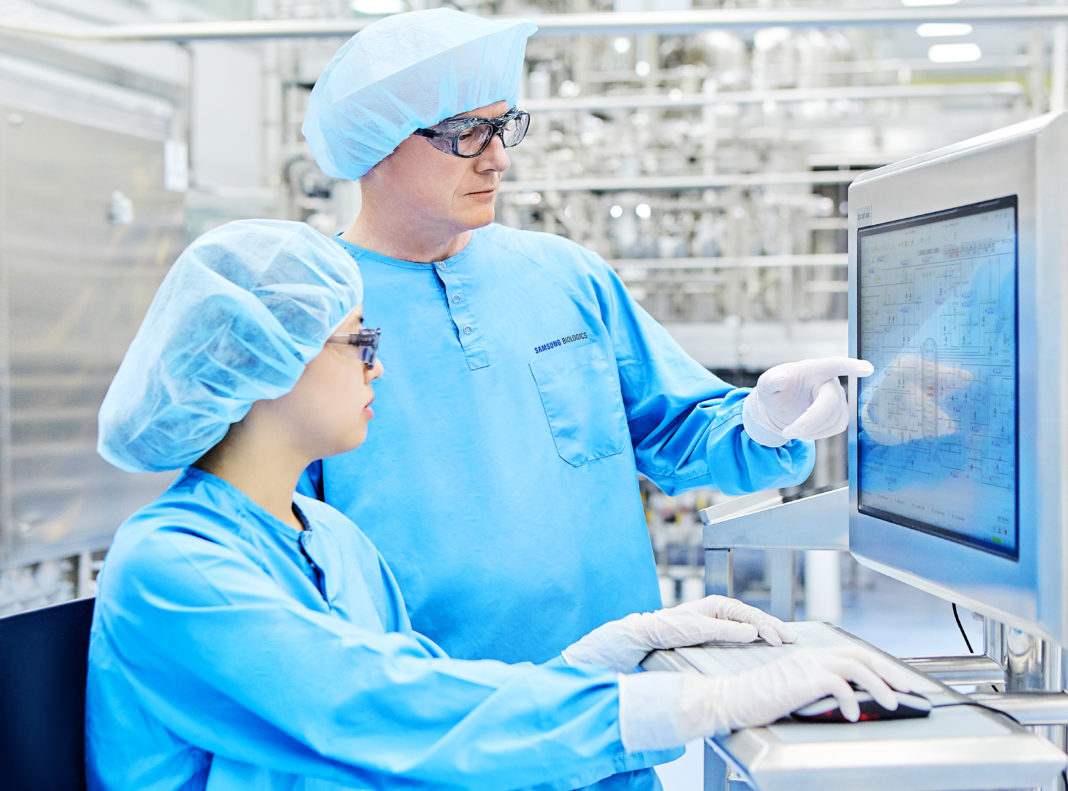Samsung Biologics, a CDMO, last month announced plans for a factory, describing it as its “P4 super plant” and citing growing demand for biopharmaceutical production capacity as the driver for the investment.
When complete in 2022 the facility will house 256,000 liters of bioreactor capacity, according to Samsung Biologics, which said it will provide “real-time production schedule simulation through automation.” and employ the latest biomanufacturing technologies.
“Automation and digitalization will be utilized to drive significant aspects of plant operations, including but not limited to manufacturing control systems, facilities automation, MES, etc.,” company spokeswoman Clare Kim told GEN. “Other services such as quality management, will leverage existing centralized digital platforms.”
The CDMO already has three facilities at the site, all of which were designed to employ automation and other bioprocess 4.0-based technologies.
“Automation and digitalization are optimal when taken into consideration at the initial plant design stage,” continues Kim. “They ensure that required interfaces and hardware, software, firmware integrations are planned for, and the use of automation, especially software user interfaces are reflected in the standard operating procedures from the start.”
Without planning integration can be a challenge, notes Kim, because the range of technologies available is limited.
“There’s always room for improvement across the board. We would like to see more out-of-the-box integration with biometric and VR/AR hardware from the traditional MES platform providers,” she continues.
Samsung Biologics expects the P4 plant to have the edge over more traditional CDMO bioprocessing facilities that employ older fashioned control and monitoring technologies.
“Based on our experience with our other plants, we expect significant benefits in terms of operational efficiency and higher quality due to the reduction of manual and paper based processes,” says Kim.
Regulatory acceptance
Samsung Biologics also expects biopharmaceutical manufactured using increased automation and AI-based control technologies to be well received by drug regulatory agencies.
“We believe that while the application and regulatory acceptance of AI in the manufacturing space is not yet fully mature, there is a lot of potential for AI being at the core of the next wave of innovation and transformation for not only our internal processes but also ultimately our customer experience and value,” says Kim.
She cited data integrity as an example, explaining “here are many areas where digitalization is the only way to fully comply with the DI guidance in a more robust and sustainable way.”


